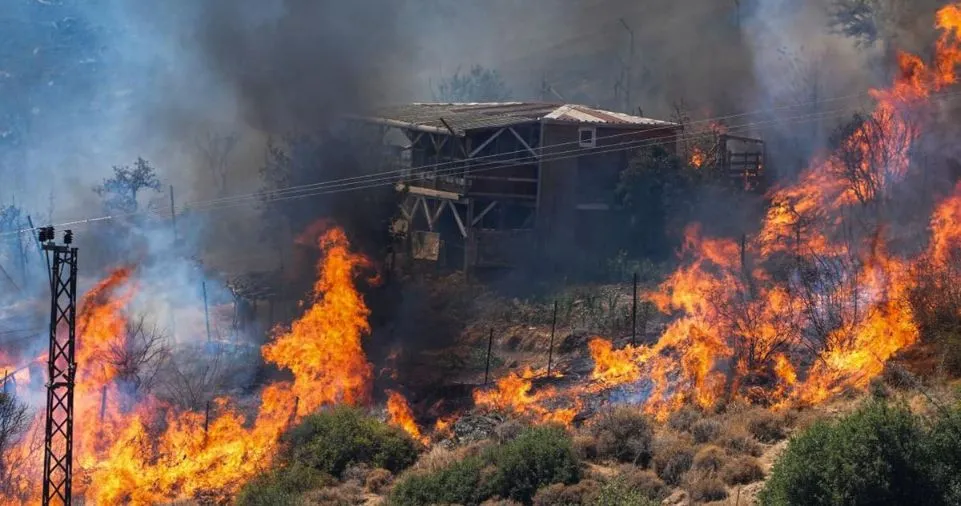It was reported by Turkish media and authorities on Saturday that hundreds more people had been evacuated overnight as firefighters battled a large forest fire in the Aegean tourist city of Izmir for a third day.
NTV news stated that on Saturday morning, the water bombers and helicopters that had been forced to land due to high winds resumed their battle against the fire.
Wednesday saw the beginning of the fire, and gusts of up to 50 km/h soon caused it to spread to residential areas.
Overnight, 900 people from five affected areas in Izmir were evacuated, according to Turkish Interior Minister Ali Yerlikaya.
According to an eyewitness who spoke to AFP, the third-most populous city in Turkiye was enveloped in a dense cloud of smoke that had turned the sky grey.
The Agriculture and Forestry Ministry’s Ibrahim Yumakli said that “two planes and eleven helicopters are currently continuing to intervene” and that city dwellers shouldn’t be “worried.”
Per the ministry, the impacted area is around 1,600 hectares (3,900 acres).
Other towns in Turkiye, such as Bolu in the northwest and Aydin in the west, still have six active fires in their forest regions.
Utilising 32 fire engines, 11 water tankers, and five bulldozers, more than 300 people are actively combating fires in the Bozdogan district of Aydin, Aegean region, according to Anadolu Agency.
Fifteen homes have already been burned by the fire in the Karsikaya area, while forty-seven residences and forty-five businesses have been forced to evacuate.
Smoke from the burning woodlands has damaged many areas of the city, including the Bayrakli and Cigli districts, and as the fire progressed, an animal refuge was also evacuated.
Climate change, according to scientists, increases the likelihood, duration, and intensity of severe weather events like heatwaves.

